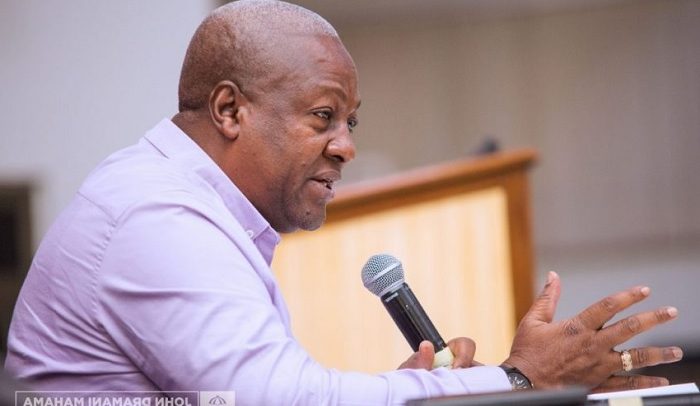John Mahama
The former president John Dramani Mahama has conceded that COVID 19 had devastating effects on economies of African countries.
He further admitted that the two-month-old Russia-Ukraine war has had negative impact on African countries.
Mr. Mahama painted the bleak picture of the global and geopolitical events on the continent including Ghana while speaking at the 24th Africa Business Conference, organised by Harvard Business School in the United States.
He however, argues that, the handling of the crisis by various governments showed how bad impact of the two storms reflected on the economy, believing that managers of the economies on the continent like Ghana’s economy could have been more resilient.
According to Mr. Mahama, “data from the Economic Commission of Africa”, shows that the COVID-19 pandemic created the “continent’s worst recession in 50 years, with real GDP shrinking by an average of 3% in 2020”, and that even “before the pandemic, poverty reduction was already a major challenge in Africa.
“The pandemic is estimated to have dragged about 55 million more people into poverty in Africa and exposed another 46 million more to the risk of hunger and malnourishment. Indeed 70% of hunger in Africa, which had already been on the rise since 2014, is directly attributed to this pandemic.
The former president emphasised that “Like governments all over the world, it became necessary for African governments to take action to shield their population from the effects of the pandemic. This meant, in many cases, an increase in deficits due to unbudgeted expenditures.
“This has devasted many African economies and sunk them deeper into unsustainable debts and economic downturns. This pandemic has had a general deleterious effect on the economy of African nations,” Mahama said.
On the impact of the Russia-Ukraine war on the African continent, Mahama posited “Even as COVID-19 still lingers and African countries attempt to reset their economies, yet another disruption, this time of a geopolitical nature, threatens to wreck more havoc on an already fragile continent.
“The Russia-Ukraine conflict is set to peg Africa’s growth back by an estimation of about 0.7%. Inflation is expected to rise by at least 2.2% in 2022 and as many as 43 countries that depend on energy and food imports will be confronted with fiscal and current account problems.
“Global increase in energy prices has escalated the cost of living and compounded hardships in many countries.
“In light of the above, the conversation is now about overcoming the twin problems of a pandemic and its aftermaths, and a geopolitical-induced economic crisis, as opposed to one that focuses on just post-pandemic recovery.”
Touching on Ghana’s case, the 2020 flagbearer of the opposition National Democratic Congress was of the view that some African countries have been able to deal with the effects of the pandemic and the ongoing Russia-Ukraine war better than others, based on the resilience of their economies, discipline and prudent use of their resource envelopes in the period of this crisis.
“In my country, Ghana, our economy has emerged in an extremely poor shape from the COVID experience. A ballooning deficit, double-digit inflation, a nosediving currency, increasing debt distress, are some of the symptoms of a very ill economy,” Mahama said.
“Ghana’s case was easy to predict. With the cavalier handling of the economy by the current administration, unbridled borrowing from the capital markets, created misstatements and other critical fiscal Budget figures were certain to come to a head eventually,” he said.
He stressed that “Ghana went into the pandemic without adequate buffers and has emerged with a terribly battered economy.
“To make matters worse, a pandemic windfall in excess of GHC33 billion, which could have cushioned the economy, remains unaudited and is believed to have been used largely in the quest to win Election 2020 at all costs.”
HBS Africa Business Conference was created by African students at the Harvard Business School (HBS) some twenty-four years ago to highlight and uplift what it means to be African, to do business in Africa and to push for African development and prosperity.
This gave birth to the Africa Business Club (ABC) and informed its mission and purpose.
By Vincent Kubi

